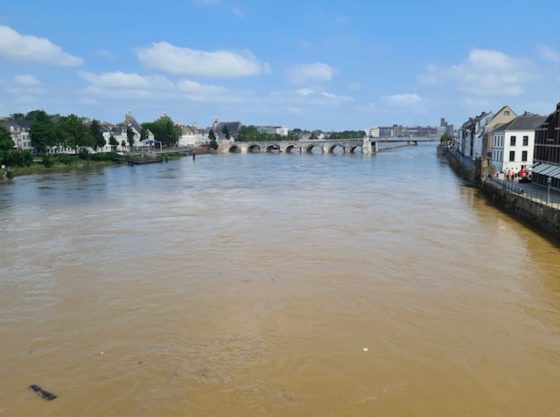Climate change report proves humanity’s role, Dutch experts say


The role of humans in climate change is no longer in dispute, according to Dutch experts involved in writing Monday’s landmark report published by the IPCC.
The United Nations climate panel is forecasting that the sea level will now rise faster than at any time in the past 3,000 years as global warming speeds up.
The IPCC says that humanity’s damaging impact on the planet is a statement of fact and that it is now ‘code red’.
‘There is no longer any scientific discussion about the role of humans,’ Rein Haarsma, a researcher with Dutch meteorological office KNMI, who co-wrote the report, told news website Nu.nl.
‘Previous IPCC reports used veiled terms like ‘probably’ or ‘very likely’. We now call it ‘indisputable’ that current warming is caused by human greenhouse gas emissions.’
The report concludes that global warming could still be much higher this century than the 1.5C noted in in Paris, and that the least predictable factor, which will prove decisive, is human behaviour.
‘It is impossible for climate scientists to predict what will happen with politics and the economy,’ climate researcher Bart van den Hurk of Deltares, also one of the authors of the report, told NU.nl.
‘The biggest factor of uncertainty is future greenhouse gas emissions. And what is new compared to the previous major IPCC report is that we’ve also worked out a scenario that shows what it takes to keep the temperature increase below 1.5C.’
Read the Guardian’s article on the IPCC report
Read Bloomberg’s article on the IPCC report
The new scenarios place the average rise in sea levels at between several decimetres to just over a metre by the end of the century but the report’s authors say that a rise in sea levels approaching two metres by the end of this century ‘cannot be ruled out’.
Almost half of the Netherlands’ 17 million inhabitants live along its 350km coast or in regions which are below sea level.
‘Climate change is something that concerns us all,’ Van den Hurk told the Volkskrant. ‘It’s not something from far that is far removed, in space or time. Every continent has regions which are facing major changes. I hope people pick up on that now.’
Sigrid Kaag, Dutch foreign affairs minister and leader of Liberal party D66, said in a reaction that hers is the last generation of politicians who can protect our way of life. ‘It is now or never,’ she said. ‘We need to implement the EU’s climate change package as fast as we can, and there should be a leadership role for the Netherlands.’
Prime minister Mark Rutte said the new report highlights how important it is that the EU meet targets set for 2030 and 2040. ‘This is of absolute importance to the cabinet and most of all to the parties forming a new government,’ he said.
Floods
The KNMI meteorological office is taking part in an international research project to determine if the recent heavy rainfall and floods in Limburg, Germany, Belgium and Luxemburg are linked to climate change.
The research is being carried out together with experts from World Weather Attribution and from the other affected countries, the KNMI said.
Some 26% of the Netherlands is below sea level and a further 29% is susceptible to river flooding. The Dutch coast is protected by a complicated system of dykes, seawalls and sluices built after the devastating floods of 1953 which left over 1,800 people dead.
Sea level
Aimée Slangen of the Royal Netherlands Institute for Sea Research (Nioz) and another of the report’s authors, said that while the sea level forecasts do not differ much from the 2013 report, ‘we can now make concrete what the expected contribution of the melting of the Antarctica ice will be for various greenhouse gas scenarios’.
‘The melting of Antarctica is particularly relevant in norther Europe because of the effect of gravity,’ she said. ‘The meltwater from the South Pole on our side of the world causes an extra rise in the sea level 10%, on top of the global rise.’
This means that the Netherlands will be faced with high water every two to 10 years and that sea sluices will have to close much more often than at present to prevent flooding from the sea, she said.
Thank you for donating to DutchNews.nl.
We could not provide the Dutch News service, and keep it free of charge, without the generous support of our readers. Your donations allow us to report on issues you tell us matter, and provide you with a summary of the most important Dutch news each day.
Make a donation